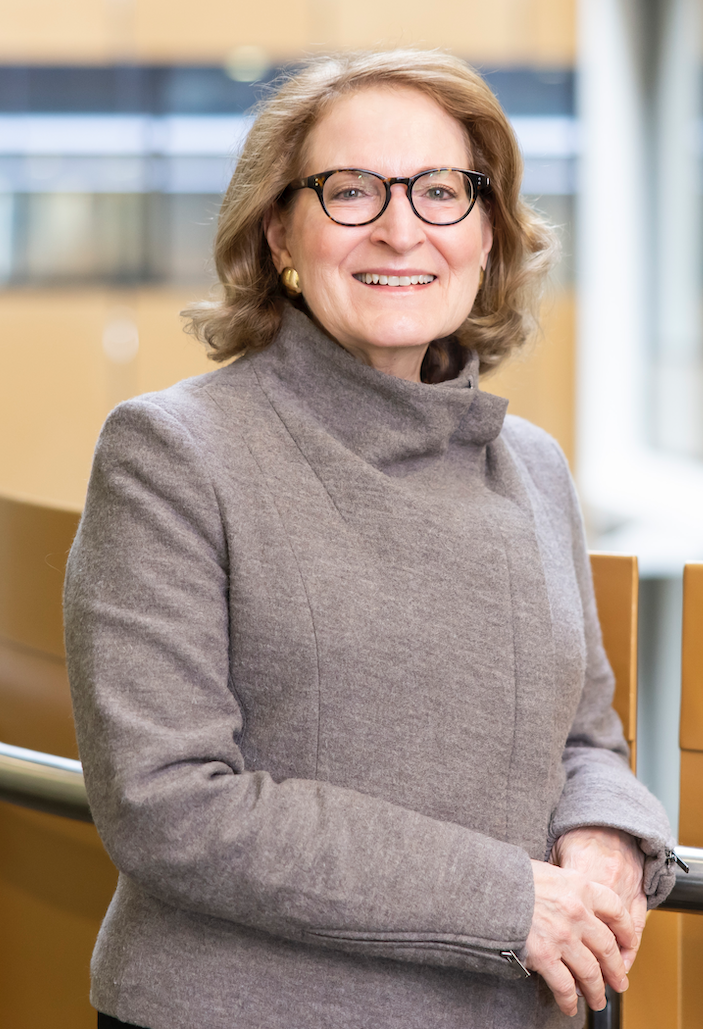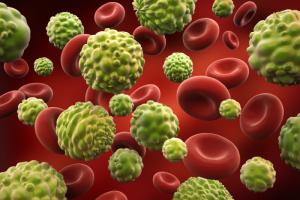
My Expertise
Expertise: As a translational cell biologist, I research a key structural feature of cells, the actin/tropomyosin cytoskeleton, and develop therapeutics that target the cytoskeleton in a range of human conditions including cancer, platelet dysfunction, lens opacification and cataracts, chronic inflammatory bowel disease and fibrosis. My research is in the emerging multidisciplinary field of mechanobiology that examines the relationship between the physical structure of cells and their environmental signals and forces. My work involves collaborating with academic, health and industry partners within Australia and internationally.
Approaches: I use and develop state-of-the-art imaging modalities to visualise actin/tropomyosin structures in cells, including live cell imaging, intravital subcellular microscopy ISMic), intracellular intravital single molecule imaging (iSiMM), and correlative cryo-electron tomography. I develop tropomyosin-specific reagents including antibodies and genetically modified mice for academic collaborations and commercial use to identify cell cytoskeleton structures in health and disease. I use our tropomyosin antibodies to screen human tumour microarrays for diagnostic indicators. I partner with industry to develop drugs to modulate tropomyosin for potential therapies in human conditions.
Impact: My research has resulted in the development of a platform technology
Keywords
Fields of Research (FoR)
Molecular Medicine, Cancer Cell Biology, Cell Development, Proliferation and Death, Biologically Active MoleculesSEO tags
Biography
Professor Hardeman received her doctorate from the Department of Biological Sciences, Stanford University in the field of cholesterol biosynthesis and then took up a postdoctoral fellowship in the Department of Pharmacology, Stanford Medical School to study muscle determination factors funded by an NIH Postdoctoral Fellowship. She established her laboratory, the Muscle Development Unit, at the Children's Medical Research Institute in Sydney,...view more
Professor Hardeman received her doctorate from the Department of Biological Sciences, Stanford University in the field of cholesterol biosynthesis and then took up a postdoctoral fellowship in the Department of Pharmacology, Stanford Medical School to study muscle determination factors funded by an NIH Postdoctoral Fellowship. She established her laboratory, the Muscle Development Unit, at the Children's Medical Research Institute in Sydney, and built an international reputation defining mechanisms of muscle gene regulation, generating mouse models for human muscle diseases of actin thin filaments, and trialing therapies as part of an international consortium of the European Neuromuscular Center.
In 2009 she moved to the University of New South Wales to take up a Research Chair in Anatomy and establish the Cellular and Genetic Medicine Unit. In 2018 she became the Head of Cell Biology in the School of Medical Sciences.
Throughout her research career she has studied the physiology of the actin/tropomyosin cytoskeleton and in collaboration with Professor Peter Gunning, identified tropomyosins as the gatekeepers of actin filament function and established the physiological role of the cancer-associated tropomyosin, Tpm3.1. Her laboratory has examined Tpm3.1 as a druggable target for cancer therapy including demonstrating the efficacy of anti-Tpm3.1 drugs to treat the childhood cancer neuroblastoma, in a mouse xenograft model. They have expanded their drug development programs to target additional tropomyosin isoforms in a range of human disease indications.
She was a member of the Scientific Advisory Boards of the Australian Research Council Special Research Centres for the Molecular Genetics of Development (2004-2009) and Functional and Applied Genomics (2006-2009), President of the Australian and New Zealand Society for Cell and Developmental Biology (200-2011), Member (2009-2013) and Chair (2013-ongoing) of the Australian National Health and Medical Research Council Animal Welfare Committee, and Deputy Chair (2010-2013) and Chair (2014-2016) of the National Committee for Biomedical Sciences, the Australian Academy of Science. She was a member of the UNSW Academic Board and Committee on Research (2010-2013).
Current Appointments & Positions Held
- Professor, Head of Cell Biology, Department of Pathology, School of Medical Sciences
- Chair, NHMRC Animal Welfare Committee
- Committee Member, Australian and New Zealand Society for Cell and Developmental Biology
Membership in Societies
- Australian and New Zealand Society for Cell and Developmental Biology
- Australian Society for Biochemistry and Molecular Biology
- Australian Society for Medical Research
- Australian Society for Mechanobiology
- American Society for Cell Biology
- Biophysical Society
My Grants
- 2022 NHMRC Ideas Grant - Targeting actin-driven membrane budding to modulate platelet production in health and disease
- 2021 TroBio Therapeutics - Drug targeting tropomyosins in human diseases
- 2021 ARC LIEF - Integrated multimodal system for multiplexed imaging of signal transduction
My Qualifications
- 1987 Fellow in Pharmacology, Stanford University Medical Center
- 1983 PhD Biological Sciences, Stanford University
- 1977 BA/BSc (Plan II Interdisciplinary Arts/Biochemistry) (summa cum laude), The University of Texas at Austin
My Research Supervision
Supervision keywords
Areas of supervision
I am available to supervise ILP, Honours and PhD students.
Currently supervising
Maria Lastra Cagigas, Scientia PhD Scholar
Xing Xu, PhD
Marco Heydecker, PhD
My Teaching
I am a co-convenor of:
T1 PATH3210 Visualising Disease
T2 SOMS3232 Cellular Mechanisms of Health and Disease
Location
Wallace Wurth Building C27, Level 2 East
Cnr High St & Botany St
Sydney, NSW 2052
Australia
Follow
Publications
ORCID as entered in ROS
Research Activities
A potential target for anti-cancer drugs is the actin cytoskeleton; however, it has been unattainable because the toxicity associated with disabling this target has been unacceptable. The actin cytoskeleton is a desirable target because it controls many fundamental processes in the cancer cell such as cell growth, movement and interaction with the surrounding environment. We have identified a way to attack specific actin filament populations within cells by developing drugs that target specific isoforms of the actin-associated protein tropomyosin. This allows us to target actin filaments…
